External Hard Drive vs. USB Flash Drive: Differences, Use & Reliability

I think there's an issue with my storage device, but I'm not sure
Start a free evaluationAlthough external hard drives and USB flash drives are portable storage devices, they differ significantly in size, performance, cost,portability, and reliability. Additionally, they utilize different technologies for data storage. The differences between these two devices influence their suitability for various data storage purposes.Quick Summary: External hard drives offer more storage capacity, faster read/write speeds, and better protection against data loss than USB flash drives. However, external HDDs are bulkier and require external power when used away from home or office. USB flash drives are smaller, cheaper, and more portable than external HDDs, but their reliability can depend on how they are stored and backed up regularly. Ultimately, the external storage device you choose will depend on what you are planning to use it for.
What is an external hard drive?
An external hard drive is a storage device that connects to your computer or laptop via a USB port. It serves as external storage for data such as pictures, music, documents, and more. You can use external hard drives to store and back up large files and transfer them between computers. Hard drive disks have spinning disks, or platters, that read and write data in digital form data as they spin.

What Is a USB Flash Drive?
A USB flash drive is a small portable device with no moving parts, used for storing and transferring data from one computer to another. It connects to the computer via a USB port and stores digital data in its internal memory chips. A USB flash drive is ideal for transporting smaller files like text documents; however, it may not be suitable for larger files or programs due to its limited capacity and relatively slower speed, although some current USB drives can offer capacities of up to 2 TB.

External hard drive vs. flash drive: what’s the difference?
The difference between hard drives and flash drives begins with the technology they use to store data. Hard drives store data by writing information on platters using a moving write/read head connected to an actuator through an arm. HDDs consist of moving parts, making them delicate devices. In contrast, flash drives operate similarly to conventional hard drives but utilize NAND chips to save data—a flash technology that retains files even when not powered on.

1. Size
External hard drives are typically larger and heavier than USB flash drives, making them less portable. On the other hand, you can find flash drives that fit in your wallet, can be used as keychains, or can be placed in the small pocket of your jeans. However, this small size has a drawback: losing a USB drive is very easy.
2. Performance
External HDDs outperform flash drives when backing up data or running applications. They provide more storage capacity and faster read/write speeds than USB flash drives, making them better for storing large files such as videos or images. For example, you can store games on an external hard drive and connect them to a computer or console and play without any problem (as long as the device is compatible with the game’s requirements). However, you can’t do the same with a flash drive, and even if the game runs, it may result in slow performance during gameplay.
3. Cost
Flash drives are generally less expensive than external hard drives due to their smaller size and lower production costs. Additionally, hard drives offer more storage capacity options and various features such as enhanced speed or extended warranties, costing more per gigabyte.
4. Portability
USB flash drives are small enough to fit on your keychain or pocket. In contrast, external hard drives are bulkier, and some models may require external power to work, making external HDDs less convenient for quick data retrieval. Flash drives are also excellent for uses such as storing music since many stereos have USB connections.
5. Reliability
While both external HDDs and USB drives can be reliable, external hard drives generally provide better protection against data loss due to advanced technologies that safeguard stored data from threats like viruses or malware attacks. Some hard drives even feature self-encrypting technology for added security. However, regarding physical damage, both types are susceptible; while a drop may not significantly harm a USB drive compared to an HDD, flash drives can bend or be lost easily.
6. Capacity
External hard drives have more storage capacity options. Magnetic platter technology is less expensive than flash technology, allowing manufacturers to offer larger capacities for their HDD devices.
7. Lifespan
USB flash drives are generally more resistant to physical damage than external hard drives due to their lack of moving parts; however, external hard drives typically have a longer lifespan in operational terms because they are designed for frequent read/write cycles and do not rely on wear-leveling technology, which is used in flash memory devices to distribute write and erase cycles across memory cells evenly. While wear-leveling helps prolong the lifespan of USB flash drives by preventing premature wear on specific cells, these drives can still wear out more quickly under regular use compared to the more robust design of external hard drives.
8. Data recovery
When external HDDs become corrupted, data recovery is generally more straightforward than USB drives because external hard drives often come equipped with advanced technologies that facilitate faster recovery processes. The underlying technology also influences how professionals restore files from these devices. Nonetheless, reputable data recovery services can work effectively on both USB flash drives and hard drives.For instance, the engineers at SalvageData consistently devise innovative methods to recover lost data—even in challenging cases like damaged devices from accidents.
Is a USB flash drive more reliable than a hard drive?
The answer depends on the specific device's quality and context of usage. While external hard drives typically offer better protection against data loss due to their advanced technology, USB flash drives can be reliable when stored properly. USB flash drives are often more reliable for transporting data between devices since they lack moving parts; however, for backup purposes or consistent use as secondary storage (e.g., for a computer), external hard drives remain a dependable choice.
Which should you buy: a USB drive or an external hard drive?
Ultimately, the type of external storage you choose will depend on your intended use case. An external hard drive is likely your best option if you need to store larger files or back up important data like photos and videos. Conversely, a USB flash drive would suffice if you only need to transport small documents between computers.It’s crucial to remember that flash drives aren't designed for constant writing; frequent use can lead to deterioration over time—therefore, always maintain backups of any critical data stored on your flash drive.
Related services
These are the most commonly requested data recovery services. At our headquarters' cleanroom lab, our certified engineers conduct a thorough review of any type of physical storage device, determining if there is logical or physical damage and carefully restoring all of the lost files.ces.

External Drive Data Recovery
We recover data from both external SSD and HDD drives. Rely on certified experts to restore your important files from damaged or corrupted external drives.
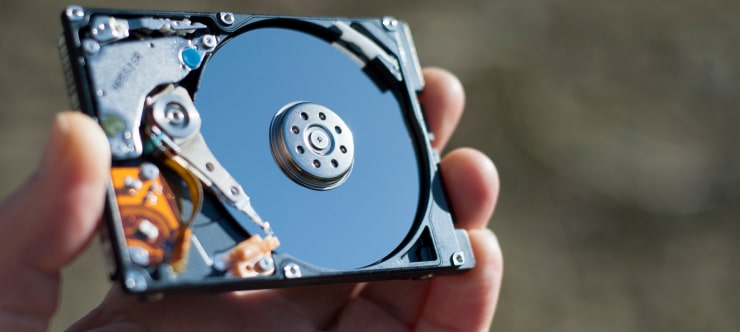
Hard Drive Data Recovery
Recover data from all brands of HDD, PC hard drives, and hybrid disks. Our specialists ensure fast and secure recovery for any data loss scenario.
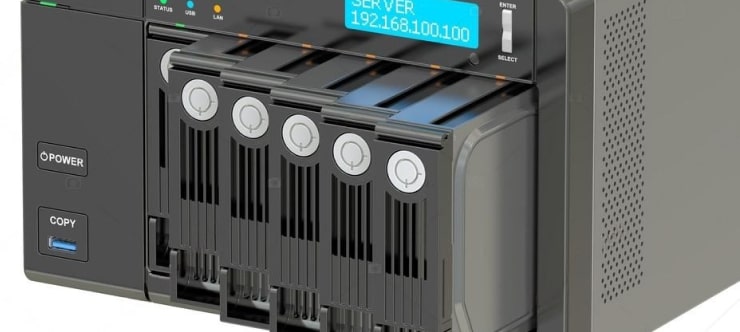
NAS Data Recovery
Recover data from NAS devices, including RAID configurations. Our team handles all types of NAS systems and ensures data recovery with minimal downtime.
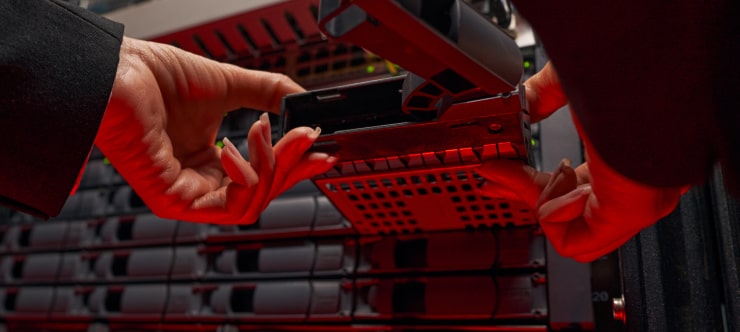
RAID Data Recovery
Our RAID data recovery services cover RAID 0, 1, 5, 10, and other configurations. We offer expert solutions for failed, degraded, or corrupted RAID arrays.
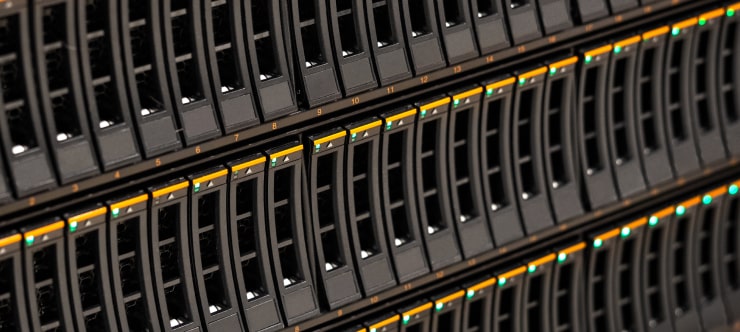
SAN Data Recovery
Our team specializes in handling SAN devices from leading manufacturers like Dell EMC, HP, and IBM, ensuring efficient recovery with minimal disruption to your operations.
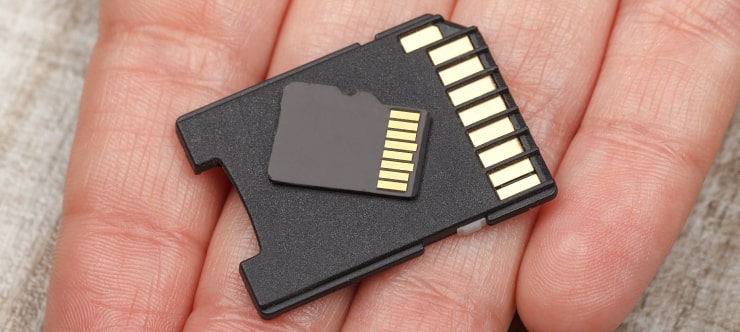
SD Card Data Recovery
Our recovery experts specialize in restoring data from SD and memory cards. We guarantee quick recovery with a no-data, no-charge policy.
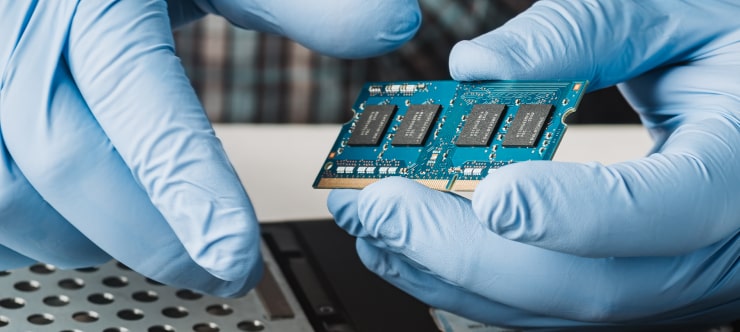
SSD Data Recovery
Our data recovery experts handle all SSD data loss scenarios with advanced tools, ensuring maximum recovery with high-security protocols.
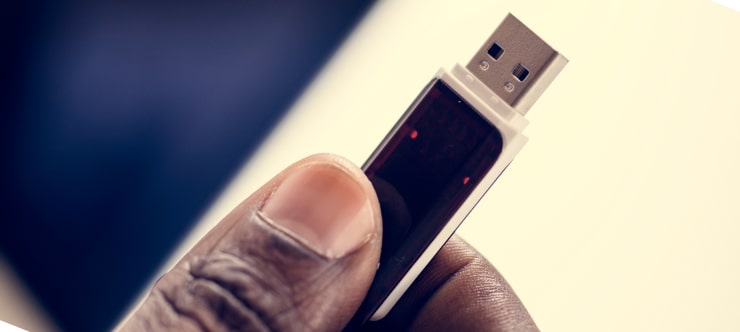
USB Flash Drive Data Recovery
Recover lost data from USB flash drives, regardless of the damage or brand. We offer free in-lab evaluations to assess data recovery needs.
If you’re unsure about which data recovery service to choose, let our team assist you in selecting the appropriate solutions. We understand the anxiety that comes with a sudden drive failure, and we are more prompt in our actions compared to other recovery service providers.



